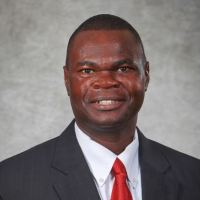Commentary on Romans 8:1-11
Beneath and embedded in Paul’s letter to the Romans is the ferment of the empowerment of a new life brought about by God’s unconditional love.
The nature of God’s love is manifested in the ministry, death and resurrection of Jesus Christ — this love is given full potency by the presence and wonder-working power of the Holy Spirit promised by Jesus in John 14:26. Paul’s message in Romans 8:1-11 is focused on calling believers to have a personal experience of the Holy Spirit and to anchor their lives in the promised “advocate or counselor,” (John 14: 26). Thus, through Christ and the Holy Spirit, believers are propelled to live out liberated lives, free from the “condemnation,” by evil worldviews. Preaching and teaching on spiritual rebirth is always needed and pastors must not have an oversight on the power and presence of the Holy Spirit within the church and among church members.
In Romans 7:14-25, the apostle Paul paints a graphic description of the tension between humanity’s ego and the Holy Spirit; of which he exhorts believers to choose a life of the spirit. The tension Paul portrays needs to be acknowledged because the human condition is indeed characterized by an in-between worldview. However, conversion is a much-needed process of every Christian believer. While good and evil dwell in the believer, Paul calls on believers to pray for the indwelling of the Holy Spirit, who brings health, security and transformation to the human condition (Romans 8: 1-39). Therefore, what we have in Romans 8:1-11 is Paul’s teaching about the power of the Holy Spirit in offering humanity a new life in Christ.
Being born of the spirit is not a case of being liberal or conservative but is the only way human beings can become transformed persons on their journey to becoming citizens of the Kingdom of God. In some way, Romans 8:1-11 is Paul’s theological defense of everything that Christ accomplished on the Cross to eradicate humanity from the power of the law into the power of the Holy Spirit. From this life of the Holy Spirit, “nothing can separate the believer.”
The message of new birth must be preached in today’s world; especially in main line denominations where a decline in membership has caused closure of some congregations that were once vibrant and life-giving centers of spiritual growth and transformation. Spiritual rebirth should be the position of every Christian believer, because standing in the church does not depend on past life but on what the Holy Spirit continues to do. The Cross of Jesus Christ and the Holy Spirit are the two partners accompanying believers on their salvation journey.
I am convinced that through the power of the Holy Spirit believers are drawn into a reconciled relationship with God and one another. Pauline theology cautions people not to focus on lives centered on gratifying the flesh because this will lead to spiritual death. Instead, Paul’s theology focuses more on a two-fold goal of the Holy Spirit that is ‘reconciliation and peace.’ In Romans 8:8, Paul sums up his point by emphasizing that life lived to gratify the flesh “cannot please God,” instead, a life grounded in the Holy Spirit assures God’s blessings and divine protection.
My reading and interpretation of Romans 8 is that the ‘flesh,’ is not negative, but like many other God given gifts the flesh must cooperate with the power of the Holy Spirit so that glory will be given to God. In some sense, I am not negating the power of reason and intelligence but am advocating for the central role of the Holy Spirit as Paul teaches us in all his letters. Similarly, clergy must expand their interpretive theological horizons and be able to help parishioners grasp the width, depth and vastness of the teaching role of the Spirit. Among other things; the Holy Spirit opens human minds to new worldviews, insights and strategies. What Paul exhorts believers in this pericope is to be open to the guiding role of the Holy Spirit whose work is to teach, sustain communities of faith, and guide believers along their faith journeys.
In essence, Romans 8:1-39 functions as a model prayer for every believer who finds oneself in challenging situations. Having been indwelt and believing in the Holy Spirit, the adopted believer is invited to enjoy the blessings of God and the victory that proceeds from one’s relationship with God, Jesus Christ and the Holy Spirit. In other words, Paul in Romans 8:1-11, introduces believers to ‘Trinitarian,’ theology and in particular to the ministry role of the Holy Spirit.
While the word ‘liberation,’ has received a negative connotation, pastors must teach believers a theological understanding of this concept. The Holy Spirit’s function is to open believers to a new age of life possibilities: alternatives and norms of life “in Christ.” Paul is not the one who introduced and framed liberation but Jesus Christ is the one who first mentioned the liberating power of the Gospel in Luke 4:18-19. Therefore, the Holy Spirit has liberating power and the source of this power is God who continues to work in the church and through the believers across the globe. Having argued for the Holy Spirit’s role and function in the life of a believer; I am convinced that Paul was perhaps influenced by the theology we find in the Johannine or the fourth Gospel.
While believers are promised liberation from sin, clergy must also remind Christian communities of the tension that is always at work in the world. The tension cannot be ignored but must always be recognized because the so-called human condition has pressure on both Christians and non-Christians. Simply put, the possibility of being pressured by the flesh is present but the Holy Spirit is always at work quickening the believer to live a gracious life. In some way, the tension we live in must be welcomed because it assists believers to live balanced lives.
All in all, Christians both clergy and parishioners must live prayer-filled lives because without prayer the human condition will indeed dominate and destroy one’s relationship with God. Prayer when framed with the Holy Spirit and coming from one’s heart can set one free from the snares and challenges of this world.


July 16, 2017